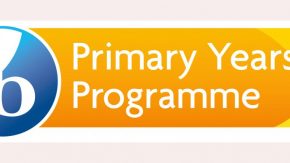Pastoral Care
Social and Emotional Learning
Social and Emotional Learning can help students develop the understanding, strategies and skills that support a positive sense of self, promote respectful relationships and build capacity to recognise and manage their own emotions and make responsible decisions.
Most schools have been teaching social-emotional learning (SEL) for years but now the term is working its way into the public consciousness – and even business leaders are acknowledging the importance of SEL in the workplace, however, there are some broad (and in some cases erroneous) definitions out there. To learn more about SEL, what it looks like in the classroom, and how it’s relevant to business, please read on.
What SEL Is
- Recognising emotions in oneself and others
- Managing strong emotions
- Having empathy for others
- Controlling impulses
- Communicating clearly and assertively
- Maintaining cooperative relationships
- Making responsible decisions
- Solving problems effectively
What SEL Isn’t
- Kids sitting around in circles singing songs
- Parenting your kids for you
- Suggesting you’re not doing a good enough job as a parent
- Suggesting that today’s generation of kids is somehow broken
- Psychotherapy
- Taught at the expense of core academic subjects such as maths, science or literacy
How SEL Is Taught in Classrooms
Children learn SEL in a variety of ways, including the behaviour they see modeled by the adults in their lives. But SEL can also be taught explicitly in the classroom, in much the same way maths or reading is taught:
- The teacher explains a concept with words, pictures, video, and/or audio
- Students practice the concept with skill practice, group discussion, individual writing, or partner work
- The teacher continues reinforcing the concept throughout the week
- The teacher sends information home for students to work on with parents
- The teacher checks for understanding
- The teacher re-teaches where necessary
The development of social skills and a positive mindset are essential for all young people. To support this process each year we run the PALS program which forms part of our Pastoral Care Policy (incorporating Anti-Bullying) together with our use of the Second Step program across all year levels. There is a large amount of research available to support this program which can be found at http://www.cfchildren.org/second-step/research.
Over the years the teachers at Lindfield have collaboratively developed the PALS program and recently adopted the Second Step program to bring together current research on the importance of well-being, social skill development and resilience, and our observations of the needs of our boys.
Mr Pascal Czerwenka – Deputy Head of Campus
Reference
https://www.edutopia.org/keys-social-emotional-learning-video






